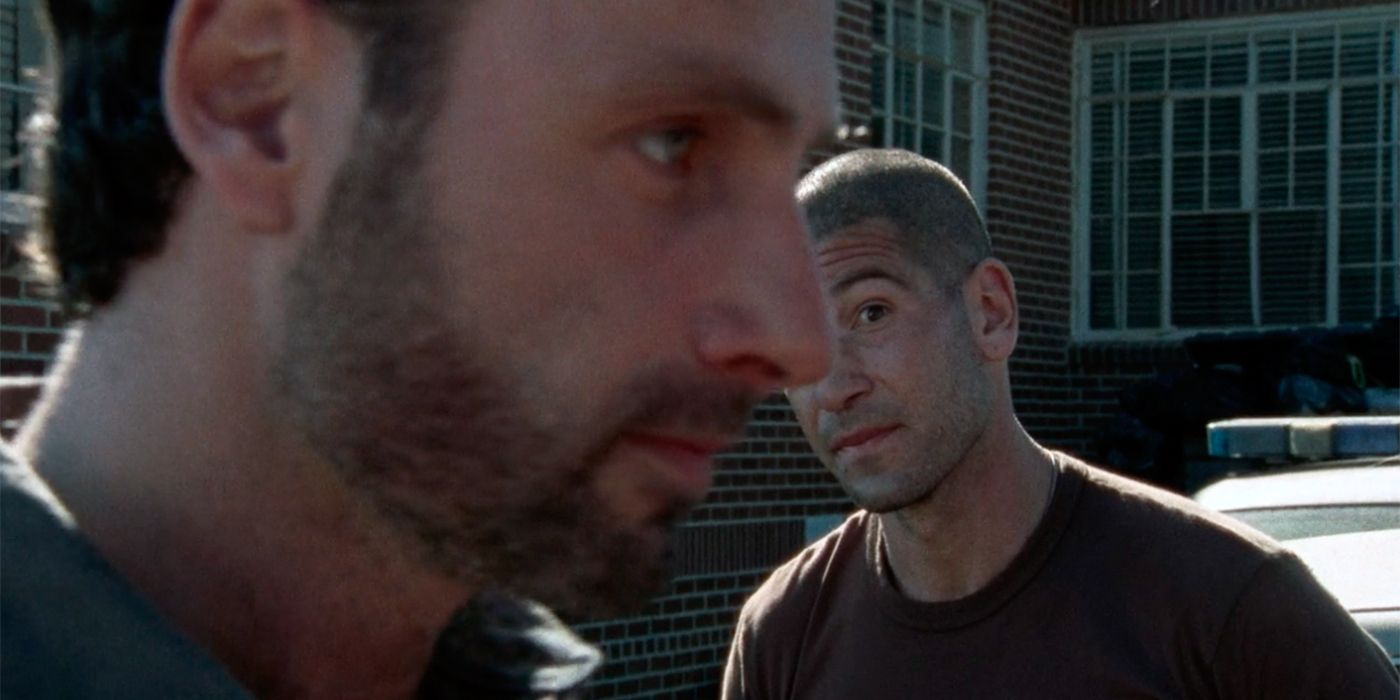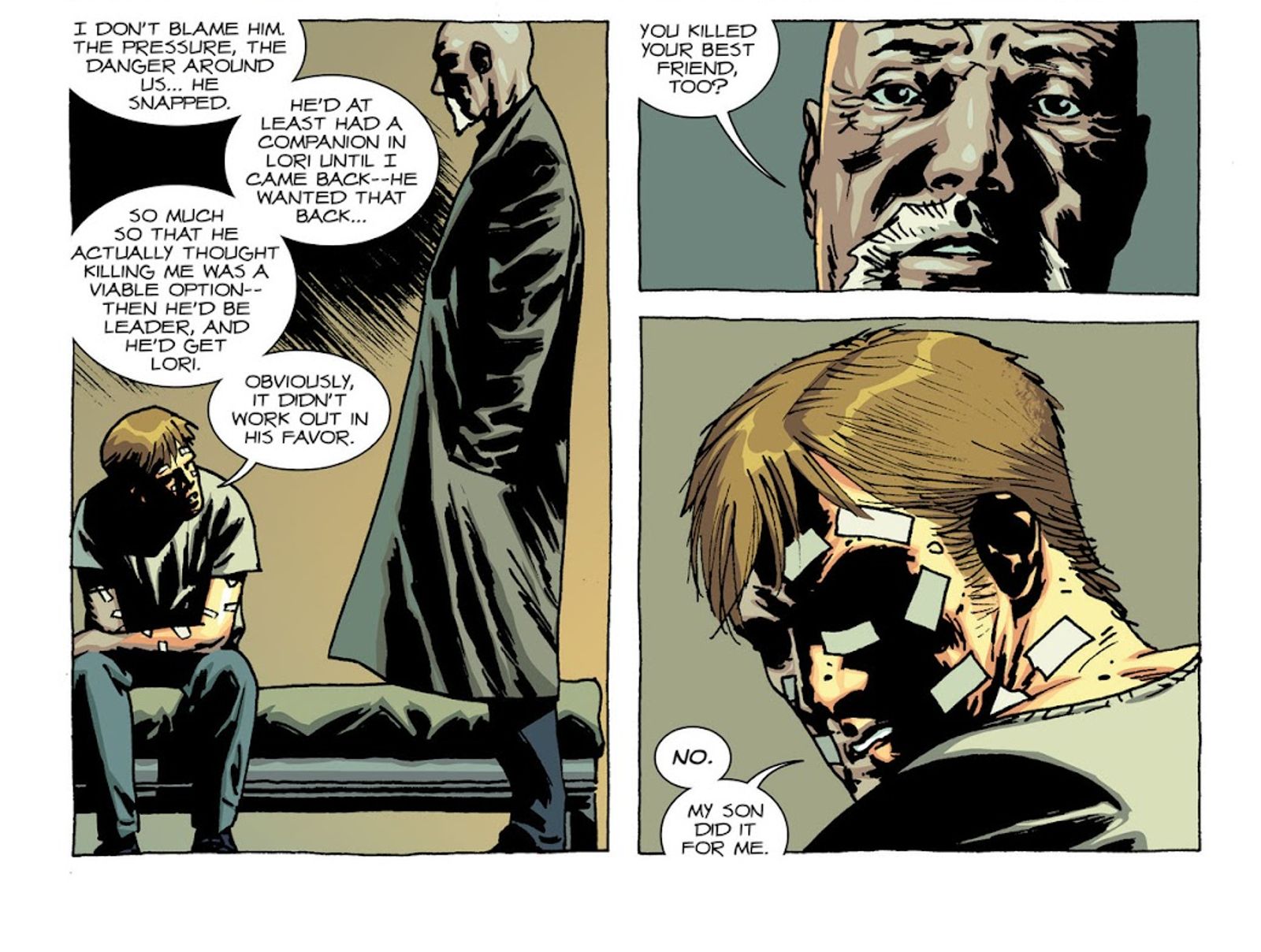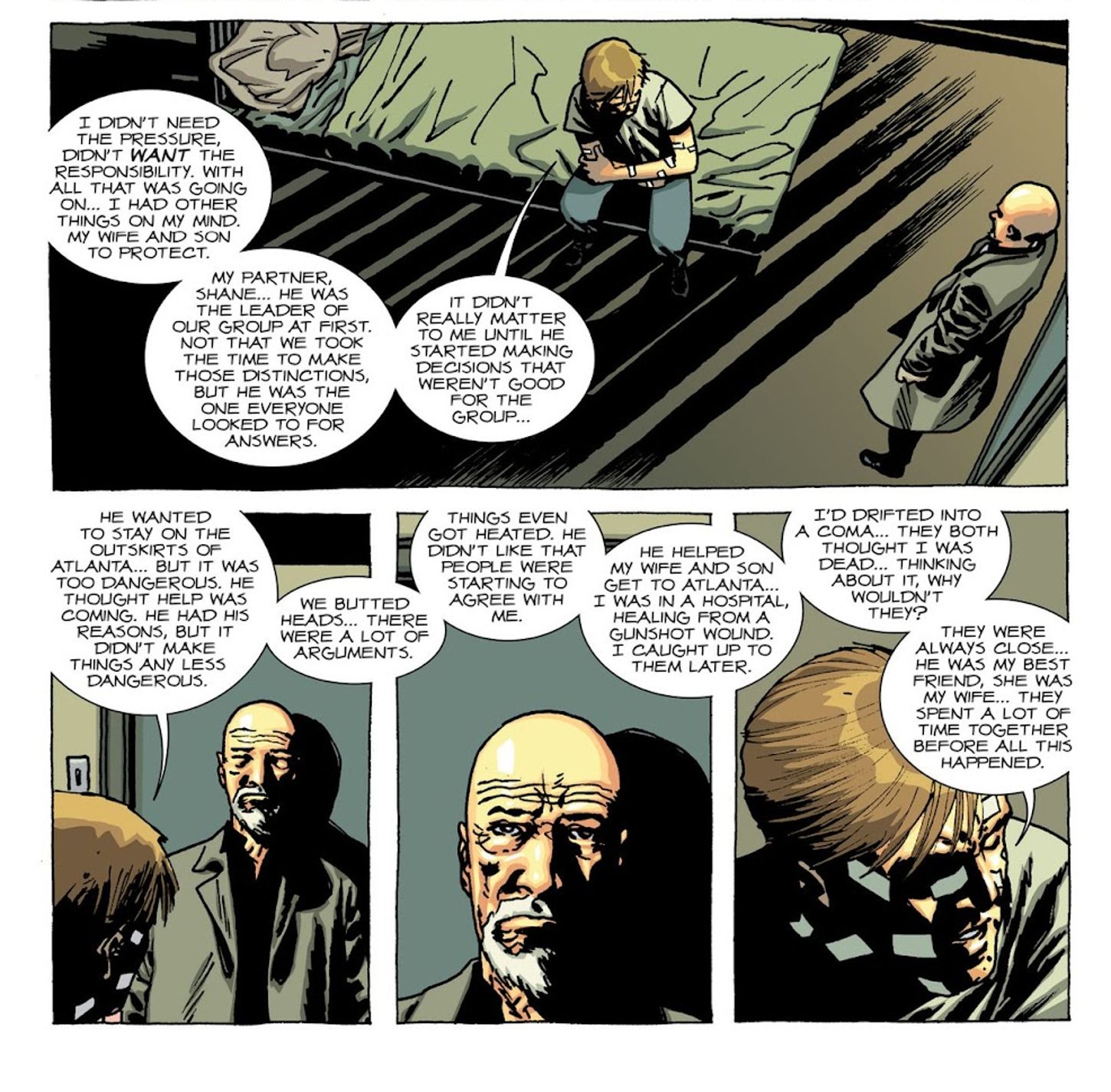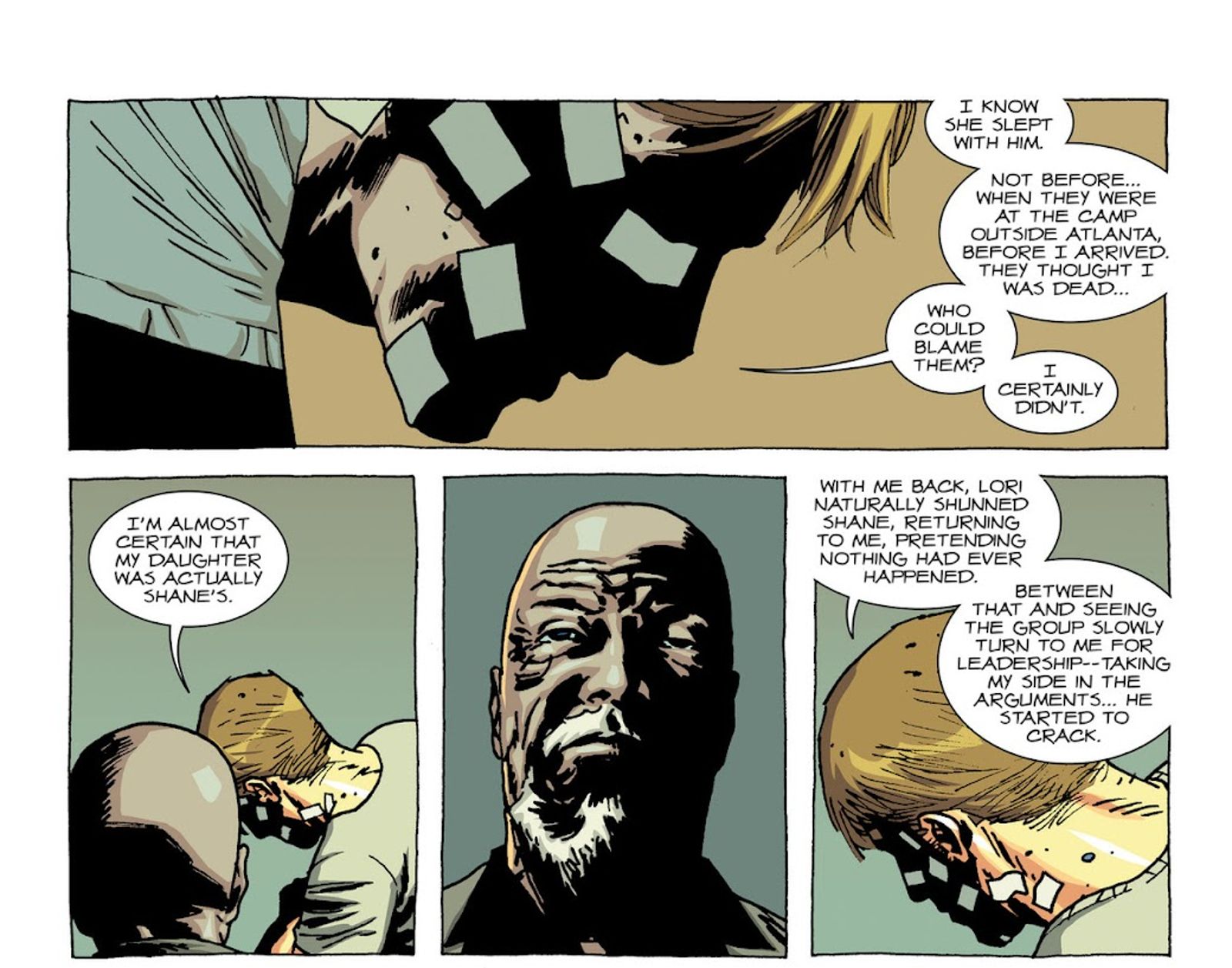Walking Dead always prioritized its human drama, starting with a classic “man is in coma, man’s closest friend sleeps with man’s wife” story.

Summary
- In Walking Dead #76, Rick Grimes posthumously forgives his late best friend, Shane, for sleeping with his wife, Lori, and acknowledges that he has come to understand their relationship over time.
- Rick Grimes is consumed by grief and trauma after losing his wife and baby, and seeing so much other death and destruction as the leader of a group of survivors during the zombie apocalypse.
- The scene showcases Walking Dead’s ability to create emotionally resonant characters, with complex responses to the narrative; even when the story might start with familiar beats, it was consistently able to go somewhere unexpected.
Set against the backdrop of a zombie apocalypse, The Walking Dead always put an emphasis on depicting human conflict – with the first iteration of this being the confrontation between Rick and Shane at the conclusion of the series’ initial arc; despite having ample reason to hate his late best friend, later issues of the series showed Rick Grimes to come to understand and empathize with Shane.
Walking Dead #76 – written by Robert Kirkman, with art by Charlie Adlard – featured a conversation between Rick and Douglas Monroe, leader of the Alexandria Free Zone. For Rick, it offered an opportunity for reflection, as he explained the details of Shane and Lori’s romance, admitting that he had come to understand it over time.

The scene is one of Dead’s signature quiet, insightful moments, which are just as proliferate in its pages as gore and death; at the same time, it contains the series’ equally important grim sense of humor.
Rick Is Able To Forgive Shane Post-Mortem

Walking Dead began in melodramatic fashion, with its early story beats being soap operatic in nature – while protagonist Rick Grimes was in a coma, his best friend Shane slept with his wife, Lori. Of course, author Robert Kirkman added a zombie apocalypse into the mix as well, but his storytelling always prioritized the human characters’ interpersonal drama. The writer pulls no punches; as Rick admits in Walking Dead #76 while talking to Douglas Monroe, he’s “almost certain” his infant daughter – who was killed alongside her mother, Rick’s wife Lori, in one of the series’ most tragic moments – was in fact Shane’s.
Shane was killed in Walking Dead #6, the concluding issue of the series’ first arc.
By Walking Dead #76, Rick Grimes is, of course, consumed by grief and trauma. Having sustained a nearly-fatal wound in the line of duty as a police officer, he woke from a coma to find the society he’d pledged to protect had collapsed entirely, replaced by a zombie nightmare world. His best friend and partner, Shane, became his first antagonist in this new post-apocalyptic life, but their conflict was nothing compared to the threats Rick would later face. Having subsequently lost Lori and baby Judith, Walking Dead #76 found him processing his loss, and his guilt, and in the process, working toward a level of clarity about Shane and Lori’s relationship.
Rick Grimes Lost More Than Anyone Can Be Expected To Bear

Lori and baby Judith were killed in Walking Dead #48, during the General’s final assault on the survivors’ prison compound.
“Who could blame them? I certainly don’t,” Rick says to Douglas, rationalizing that Shane and Lori thought Rick was dead during the chaotic uncertainty of the zombie outbreak’s early days. “Thinking about it, why wouldn’t they?” he asks rhetorically. “They were always close. He was my best friend. She was my wife. They spent a lot of time together before all of this happened.” Robert Kirkman’s dialogue choices here are especially notable – Rick’s short, mechanical sentences convey that he is perhaps processing this acceptance out loud for the first time. He is actively coming to terms, through his hurt, in this scene.
At the same time, Rick tells Douglas his ultimate confrontation with Shane wasn’t over romance; instead, it was about leadership of their group of survivors. The scene, while key for Rick’s character, also includes Walking Dead’s characteristic style of humor. As Rick implies Shane’s fate, saying, “obviously it didn’t work out in his favor,” Douglas Monroe asks, “you killed your best friend too?” Rick’s response is dry, but pointed, as he stated, “No. My son did it for me.” The scene is overall indicative of The Walking Dead’s ability to push past tropes and craft emotionally resonant characters with complex responses to the narrative.





